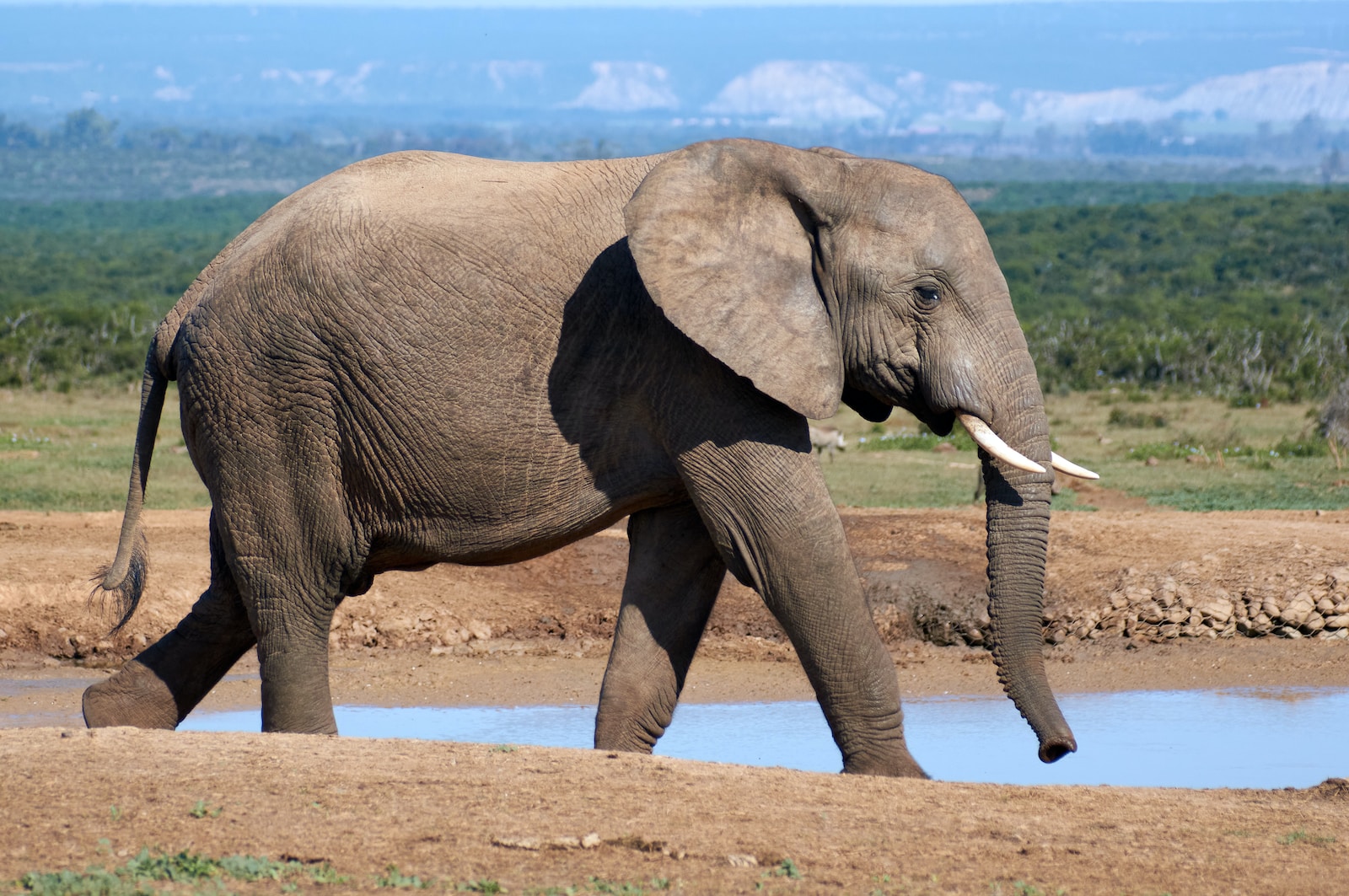Elephants: The Gentle Giants with Big Brains
Elephants, with their massive size and endearing demeanor, have captivated the hearts of humans for centuries. Beyond their physical attributes, these gentle giants are known to possess remarkable intelligence. Their ability to problem-solve and display emotional depth has left researchers and animal enthusiasts in awe. In this article, we will delve into the fascinating world of elephant intelligence and explore the mysteries surrounding their cognitive abilities.

Unlocking the Mysteries: Are Elephants Really Intelligent?
When it comes to measuring intelligence, elephants often come out on top. These magnificent creatures have brains that weigh an astonishing 5 kilograms, making them the largest among land animals. But does their size translate into intelligence? The answer is a resounding yes! Elephants exhibit a wide range of cognitive abilities, such as advanced memory, empathy, self-awareness, and even a sense of humor.
One remarkable trait of elephant intelligence is their exceptional memory. These gentle giants can remember specific locations for decades, allowing them to navigate vast landscapes and find water sources during times of drought. Moreover, elephants are known to recognize individuals they have not seen for years, showcasing their remarkable long-term memory skills. This incredible capacity for recall has been attributed to their well-developed hippocampus, a region of the brain associated with memory formation.

Another aspect of elephant intelligence lies in their ability to display empathy and compassion. Studies have shown that elephants can recognize and respond to the emotional states of their fellow herd members. They have been observed displaying comforting behaviors, such as touching, vocalizing, and even using their trunks to console distressed individuals. This level of social and emotional intelligence highlights the depth of their understanding and connection with others.
Some interesting facts about the intelligence of elephants:

- Exceptional Memory: Elephants are known for their impressive long-term memory. They can remember the locations of water sources, safe pathways, and even individual humans or other elephants they’ve encountered, sometimes for decades.
- Tool Users: Elephants have been observed using tools in the wild, such as sticks and branches, to scratch hard-to-reach spots or access food. This behavior demonstrates their problem-solving skills.
- Self-Awareness: Elephants have passed the mirror test, showing that they can recognize themselves in a mirror. This suggests a level of self-awareness, a trait associated with high intelligence.
- Complex Communication: Elephants use a wide range of vocalizations, body language, and infrasound to communicate with one another. They can convey information about emotions, intentions, and potential threats.
- Social Intelligence: These animals have strong social bonds and live in tight-knit family groups. Their ability to maintain relationships and navigate complex social dynamics highlights their social intelligence.
- Empathy: Research has suggested that elephants can exhibit empathy and concern for the well-being of others, both within their species and toward other animals in distress.
- Problem Solvers: When faced with obstacles, elephants often display creative problem-solving abilities. They can devise strategies to overcome barriers and obtain food or reach desired locations.
- Mourning Rituals: Elephants have been observed engaging in mourning rituals for deceased members of their group. This behavior reflects a deep emotional and cognitive understanding of death and loss.
- Cooperation: Elephants are known to work together to achieve common goals, such as caring for their young or defending against predators. Cooperation is a sign of advanced intelligence.
- Brainpower: Elephants have relatively large brains, which is often associated with higher intelligence in animals. Their complex cognitive abilities are thought to be linked to their brain size.
These facts highlight the remarkable intelligence of elephants and their ability to adapt, problem-solve, and engage in complex social interactions.

Different elephant species, their habitat, average age, countries of distribution, habits, reproduction, and color:
| Species | Habitat | Average Age | Countries of Distribution | Habits | Reproduction | Color |
|---|---|---|---|---|---|---|
| African Elephant | African savannas, forests, swamps | 60-70 years | Multiple African countries | Social, herbivorous | Mating and calving seasons | Grey to brown |
| Asian Elephant | Asian forests, grasslands | 60-70 years | Various Asian countries | Social, herbivorous | Mating and calving seasons | Grey to dark brown |
| Forest Elephant | Dense rainforests | 60-70 years | Central and West Africa | Solitary or small groups | Irregular, less understood mating | Dark grey to black |
| Indian Elephant | Indian subcontinent | 60-80 years | India, Sri Lanka, Nepal | Social, herbivorous | Mating and calving seasons | Grey to brown |
| Sumatran Elephant | Sumatran forests | 60-70 years | Sumatra | Social, herbivorous | Mating occurs year-round | Grey to brown |
| Borneo Elephant | Borneo rainforests | 60-70 years | Borneo | Social, herbivorous | Mating occurs year-round | Grey to brown |
| Sri Lankan Elephant | Sri Lankan forests | 60-70 years | Sri Lanka | Social, herbivorous | Mating and calving seasons | Grey to brown |
| Woolly Mammoth | Pleistocene ice age | Extinct | Eurasia, North America | Extinct, herbivorous | Extinct | Dark brown, shaggy coat |
| Mastodon | Pleistocene ice age | Extinct | North and Central America | Extinct, herbivorous | Extinct | Varies by species |
The table now includes additional information about extinct species, the Woolly Mammoth and the Mastodon, which lived during the Pleistocene ice age. Please note that they are no longer extant.

Here are some frequently asked questions (FAQs) about elephant intelligence:
1. Are elephants intelligent animals?
- Yes, elephants are widely regarded as highly intelligent animals. They display a range of complex behaviors and cognitive abilities.
2. How do we measure the intelligence of elephants?
- Elephant intelligence is typically assessed through various indicators, including problem-solving skills, tool use, social interactions, and memory. They are known for their remarkable long-term memory.
3. What kind of problem-solving abilities do elephants have?
- Elephants have been observed using tools, such as sticks and branches, to scratch themselves or reach food. They can also devise strategies to overcome obstacles or obtain food.
4. Do elephants display self-awareness?
- Some research suggests that elephants may possess self-awareness, which is a hallmark of higher intelligence. Mirror tests have shown that elephants can recognize themselves in mirrors.
5. How do elephants communicate with each other?
- Elephants communicate through a wide range of vocalizations, body language, and infrasound. They can convey complex information about threats, emotions, and even their intentions.
6. Are elephants social animals?
- Yes, elephants are highly social animals and live in close-knit family groups. Their social structure and the ability to maintain relationships with other elephants suggest a level of social intelligence.
7. Can elephants demonstrate empathy?
- There is evidence to suggest that elephants can display empathy and concern for the well-being of others, both within their own species and with other animals.
8. What is the role of memory in elephant intelligence?
- Elephants are known for their exceptional long-term memory. They can remember the locations of water sources, food, and even individuals they have encountered, which is crucial for their survival.
9. How do elephants compare to other intelligent animals, like dolphins and great apes?
- The intelligence of elephants is often compared to that of dolphins and great apes. While it’s challenging to make direct comparisons, all three species exhibit high levels of intelligence in various ways.
10. How are elephants used in research on animal intelligence?
- Elephants are subjects of extensive research on animal intelligence, with studies focusing on their problem-solving abilities, social interactions, and cognitive processes. This research helps us better understand the nature of their intelligence and how it evolved.
11. What are the conservation implications of understanding elephant intelligence?
- Understanding the intelligence of elephants can have important conservation implications. It highlights the need for their protection and ethical treatment, as they are not only highly intelligent but also ecologically significant animals.
12. Can I interact with elephants in an ethical and responsible way?
- Yes, there are responsible and ethical ways to interact with elephants, such as visiting reputable wildlife sanctuaries and conservation organizations that prioritize the welfare of these animals and their natural habitats.
13. Are there any threats to the intelligence of elephants in the wild?
- Yes, elephants in the wild face numerous threats, including habitat loss, poaching, and human-wildlife conflicts. These threats can have a negative impact on their ability to live naturally and express their intelligence.
These FAQs provide an overview of the intelligence of elephants, a remarkable and highly intelligent species of animals.

In conclusion, the evidence overwhelmingly supports the idea that elephants are intelligent creatures. Their impressive memory, capacity for empathy, and complex social dynamics all contribute to their high cognitive abilities. As we continue to study and understand these gentle giants, we should ensure their conservation and protection, allowing future generations to marvel at their remarkable intelligence. So, the next time you see an elephant, remember that you are in the presence of one of nature’s most intelligent and awe-inspiring creations.















